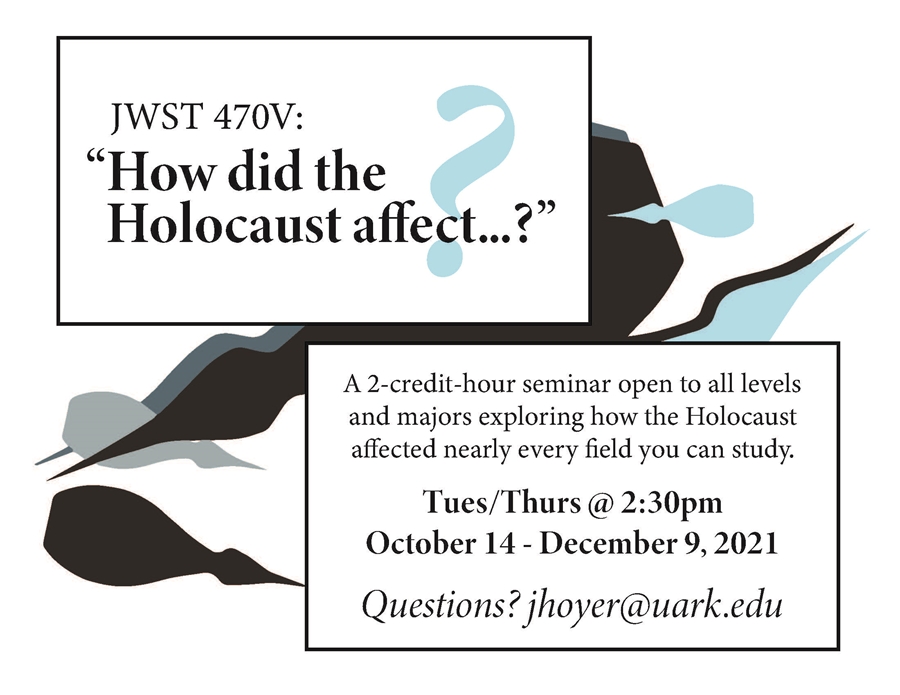Have you ever wondered how the Holocaust affected education, or politics, or physics?
What about the repercussions it had for your major or minor, or other areas, activities and fields of study you're interested in?
The Nazi genocide against the Jews – during which many additional marginalized groups were also targeted for persecution and murder – may seem for many a distant horror, since it took place during the time leading up to and over the course of WWII.
But the effects of Nazi propaganda, persecution and industrialized mass murder are still all around us – as evidenced in law, business, medicine, policy, politics, language, education and architecture, as well as in how we read, how we look at photographs and films, and even in engineering, math and physics.
Now, a new, unique eight-week, two-credit hour course, JWST 470V, "How did the Holocaust affect …?", beginning Oct. 14, will allow students to explore this and to better understand the many ways the Holocaust shaped our world and continues to affect us all.
In the course, students will hear from an array of U of A scholars on how the Holocaust affected what they do. Featured presenters include:
- Gregory Herman, associate professor of architecture in the Fay Jones School of Architecture and Design
- Daniel Kennefick, associate professor of physics
- Angie Maxwell, associate professor of political science and director of the Diane Blair Center of Southern Politics and Society
- Richard Sonn, professor of history
- Ryan Calabretta-Sajder, assistant professor of Italian
- Nadja Berkovich, teaching assistant professor of Russian
- Jennifer Hoyer, associate professor of German and director of the Jewish Studies Program, who is also leading the class
Recent Ph.D. graduate Matthew Lee will also talk about how the Holocaust affects education, and current Ph.D. candidate Toby Klein will discuss how the Holocaust affects public policy.
Toward the end of the semester, the class will also welcome a speaker from the United States Holocaust Memorial Museum, to discuss Holocaust reparations and their legacy.
Fundamental to exploring the ongoing effects of the Holocaust is hearing individual voices of those who were targeted and survived. Human rights justice advocate and Holocaust survivor Pieter Kohnstam will also tell his story and answer the class' questions.
JWST 470V, "How did the Holocaust affect …?", is made possible with donor support, allowing the Jewish Studies Program to fairly compensate the labor of the presenters. Such support is crucial for sparking new and underexplored approaches to this and other vital topics.
To learn more, please contact Hoyer at jhoyer@uark.edu.
Topics
Contacts
Jennifer M. Hoyer, director of Jewish Studies
Department of World Languages, Literatures and Cultures
479-575-4897, jhoyer@uark.edu
Andra Parrish Liwag, director of communications
Fulbright College of Arts and Sciences
479-575-4393, liwag@uark.edu
